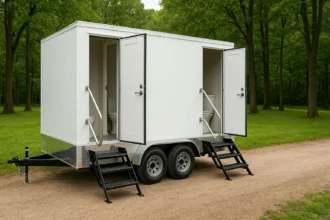As the capital city of Wales, Cardiff is known to be affordable and welcoming for international students. The cost of living in Cardiff is 38% lower than in London, and rent prices in Cardiff are 55.3% lower than in London. However, living in Cardiff might still be expensive for international students and it is important to manage your finances to ensure you can fully enjoy your time in a foreign country. In this article, we will look into the cost of living in Cardiff in detail and explore some practical tips and strategies for managing your finances.
Understanding Your Cost in Cardiff
Cardiff is a much more affordable city in the UK compared to other major cities like London, Manchester, and Edinburgh. But as the capital city in Wales, it is also crucial to know the cost of living here and manage it carefully.
The average cost of living in Cardiff for a single person is £771.7 without rent per month, covering food, transportation, and leisure activities. And the rent for one bedroom apartment in City Centre is £988.46 and outside City Centre is £806.25 per month. The actual costs may vary greatly from person to person, largely depends on lifestyles and accommodation choices.
Student Accommodation
The biggest expenses for international students in Cardiff is always student accommodation. Student accommodation Cardiff UK can vary from £80 to £280 per week, but the average cost is around £150 to £200 per week, depending on location, room type, and amenities you choose.
University-managed student halls typically ranges from £120 to £180 per week for a standard room. For example, Cardiff University offers accommodation at Talybont Residences, with prices ranging between £112 and £160 per week, depending on the type of room chosen (en-suite or shared). Off-campus Cardiff University housing in areas like Cathays and Roath are popular among students. Renting a room in a shared house typically costs between £400 and £600 per month. The price of a private flat or studio apartment can range from £600 to £900 per month. Most private student accommodation options include utility bills in the rent and are furnished with essentials so you can save a lot of money.

Food and Groceries
Apart from accommodation, food and groceries will be another significant expenses in your daily life. If cooking by yourself, the cost of groceries is about £150 to £200 per month in Cardiff. Supermarkets like Tesco, Sainsbury’s, and Asda offer affordable options and you can usually find one on foot for several minutes from your student accommodation. Shopping at Cardiff’s Market is also a popular choice due to its fresh food and reasonable prices.
Many students may prefer dining out or eating takeaways. In Cardiff, meals at fast-casual places like Nando’s or Wagamama can cost between £10 and £20 per meal. On average, a restaurant meal in Cardiff costs around £15-£25 per person. Opting for cheaper local eateries or cooking at home can significantly reduce your food-related expenses.
Transportation and Travel
Cardiff boasts a comprehensive bus network, run by Cardiff Bus, providing easy access to student accommodation and university campuses. A one-way bus fare typically costs £2.50, while a day pass is priced at approximately £5 for unlimited travel. For regular commuters, purchasing a Student Saver Card offers a 25% discount on bus fares.
Cardiff is also a bike-friendly city, with bike lanes and affordable rental schemes such as Nextbike. Renting a bike through Nextbike starts at £1 for 30 minutes, making it a budget-friendly option for students who prefer cycling over public transport.
If you’re planning to explore other parts of Wales or the UK, train stations like Cardiff Central Station connect the city to other major destinations like London, Manchester, and Bristol. However, train tickets can be expensive, so it’s advisable to book in advance or take advantage of student discounts through organizations like National Rail.
Managing Your Day-to Day Expenses
It is always a good habit to track your spending and stick to a monthly budget. The Student Finance Wales website provides helpful resources for budgeting and managing money as an international student. Many students use budgeting apps to keep track of their finances in real time. Consider more detailed suggestions to help you manage your spending:
- Set a monthly budget: Refer to the mentioned cost of living in Cardiff and set a monthly or weekly budget for yourself to avoid spending too much.
- Track every budget: It might be challenging to take notes on every expenses, but it will be very helpful to get to know where you’ve spent the money.
- Find accommodation at uhomes.com where students can get exclusive deals and cashback.
- Cook by yourself: Cooking in bulk and preparing meals in advance can reduce your overall grocery and dining costs.
- Use student discounts: Many attractions, shops, cafes, and cinemas offer student discounts. Make sure to carry your student ID and sign up for discounts.
- Avoid impulsive purchases: While it’s tempting to shop, try to limit non-essential purchases to stick to your budget.
Part-Time Work and Scholarships
While part-time work may not cover all your living costs, it can help reduce financial pressure. Many students find jobs that are flexible and fit around their academic schedule. The National Minimum Wage for workers aged 21 and over is £10.42 per hour (as of 2024). International students in the UK can work up to 20 hours per week during term time and full-time during holidays (if they hold a Tier 4 visa). This can provide extra income to cover day-to-day expenses. Popular part-time jobs for international students in Cardiff include working in cafes, retail stores, or administrative positions on campus.
Another financial aid option is scholarships. Several UK universities, including Cardiff University, offer scholarships to international students based on merit, need, or specific fields of study. These scholarships can significantly reduce tuition fees and living expenses. It’s advisable to research available scholarships and apply early.
Conclusion
Managing your finances as an international student in Cardiff may initially seem overwhelming, but with the right strategies and discipline, you can maintain financial stability throughout your studies. Plan your budget every month in advance and stick to it, track every expense to know where you spend the money, try to cook by yourself and remember to use your student discounts. Also, if you have spare time, take a part-time job is also popular to earn more money for entertainment.

















